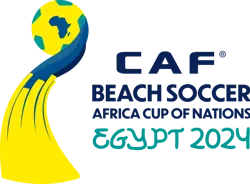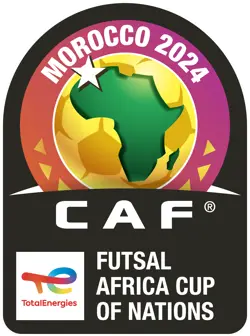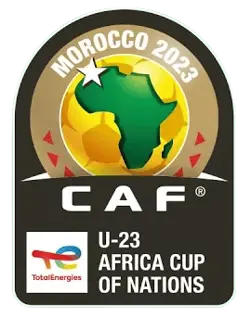Kanizat Ibrahim: "Empowering Women to Shine in African Football."
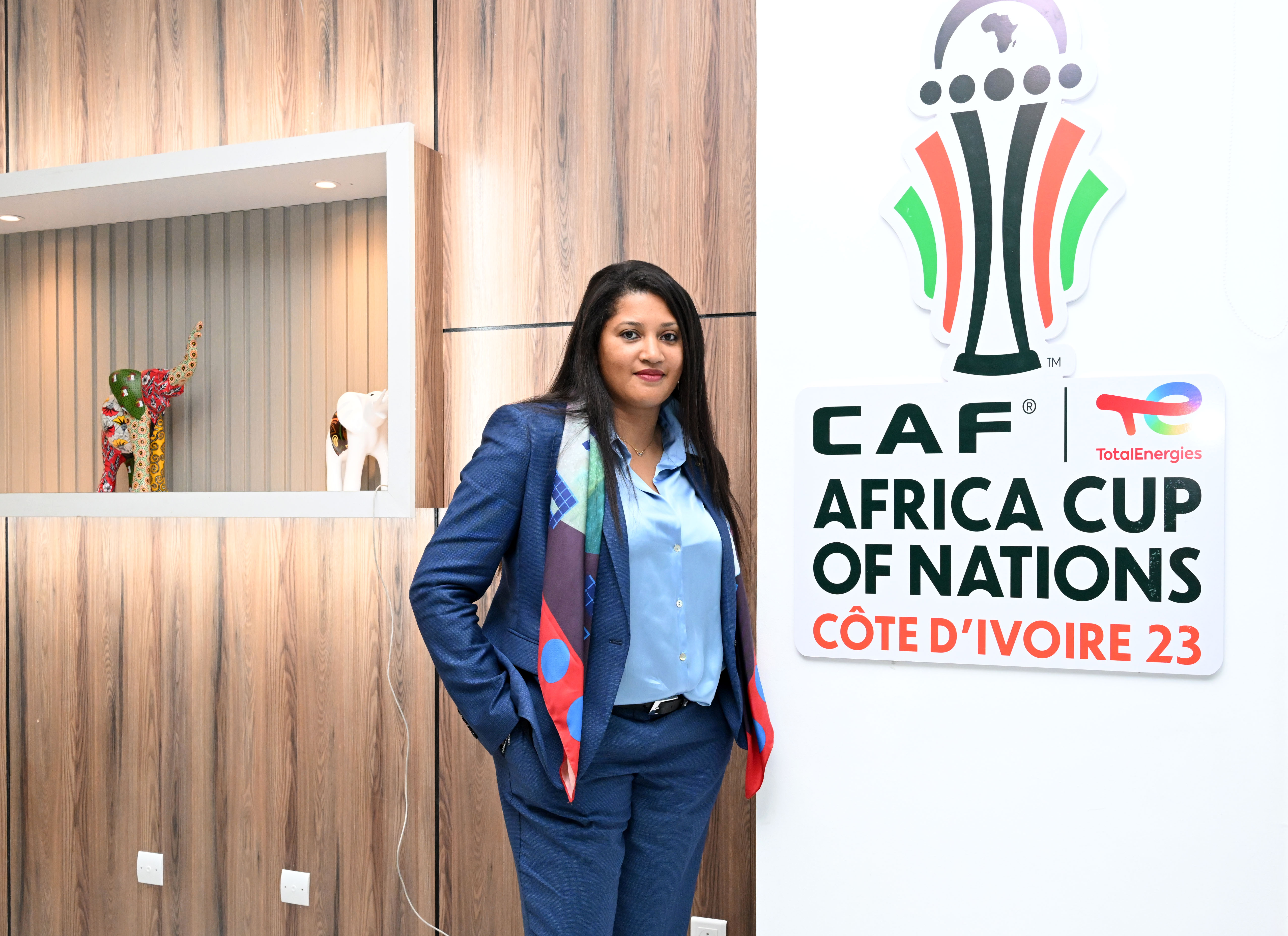
In honour of Women's Rights Month, CAFOnline shines a spotlight on those who, whether they act behind the scenes or under the spotlight, shape the future of African football. Among them, Kanizat Ibrahim embodies the will and determination that enable women's football to reach new milestones.
The first woman to hold the position of CAF Vice President she was recently elected to the FIFA Council, where she will represent the continent's interests.
Under her leadership, CAF has developed initiatives to structure women's football, notably by developing key competitions such as the CAF Women's Champions League and recently launching the GIFT program for U-17 female players.
In this interview, Kanizat Ibrahim reflects on the progress made, the challenges that still exist as well as her ambitions for the future of women's football in Africa.
She discusses the need for a shift in perception and the importance of increased support in infrastructure and funding, while sharing her clear and committed vision to make football a true opportunity for women across the continent.
She also delivers an inspiring message to young African girls who aspire to have a career in football, whether as players, coaches, or administrators.

Cafonline.com: Madam Vice President, what is your perspective on the evolution of women's football over the past four years?
Madam Kanizat Ibrahim: Hello, it’s a pleasure sit down with you and discuss the evolution of women’s football.
When I arrived at CAF in 2021, many challenges awaited us, requiring a thorough analysis of the difficulties faced by female players. Beyond the obstacles related to religion and culture in certain countries, we were confronted with a lack of resources and infrastructure.
Currently, women's football is receiving better recognition thanks to the implementation of strategies to overcome these challenges and foster the growth of the sport. Today, 47 of the 54 African federations have a senior team, and 49 have a women's first-division competition.
Women’s football is now seen as a professional opportunity, allowing players to support their families and make a career out of it.
What do you believe are the biggest challenges to accelerate the growth of women's football on the continent?
First and foremost, changing the perception of this sport is essential. If every African sees this activity as an opportunity for growth for both women and men, it would be a significant step forward. Secondly, we need to provide the same resources that exist for men: training, salaries, infrastructure, and more competitions to improve technical skills.
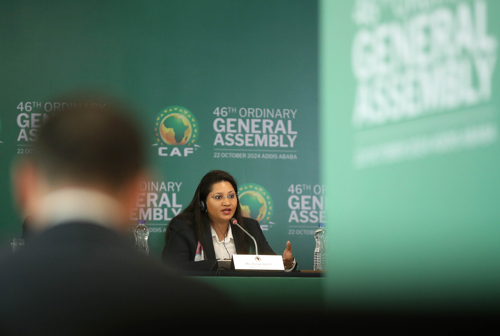
Since taking office, what major initiatives have you implemented to promote and structure women's football in Africa?
We’ve introduced competitions that allow young girls to showcase their talent from an early age, such as the African School Program initiated by CAF President Dr. Motsepe, which encourages young people to engage in football and develop an interest in the sport. Talent detection begins very early.
Secondly, we have the CAF Women's Champions League (WCL), an annual competition that highlights emerging female talents across Africa. Since its inception in 2021, we have seen an improvement in the performances of young female footballers, with teams displaying increasingly higher levels of play with each edition.
This tournament provides an opportunity for women's clubs to compete against high-level opponents, thereby enhancing their technical and tactical development, as well as increasing their visibility and recognition on the international stage. It also gives young players the chance to gain experience and prepare for global competitions.
The Women's Africa Cup of Nations is an important showcase and offers a chance to qualify for the FIFA Women's World Cup. This year, a new competition was introduced: the CAF GIFT, a U-17 women's club competition, whose inaugural edition took place in January in Tanzania. This pilot project gives young participants international experience and signals more initiatives for girls in the near future.
Do you think the representation of women in the governing bodies of African football is progressing sufficiently? What efforts remain to be made for better representation?
Unfortunately, it’s still not enough. However, being the first woman to hold the position of Vice President of CAF has been an honour for me and gives hope that this is the beginning of a larger evolution for women.
It’s crucial to be more involved in the governing bodies of African football to push forward the vision we have for young women. It’s not for men to write our history; it’s naturally our job. History shows that only those who fully invest in their projects can see them succeed.
This is also relevant in the field of sports. In some countries where women’s football has progressed, there is often an influential woman in the governing bodies. With a clear vision and natural dynamism, women can significantly contribute to the growth of the sport. African women have already shown a true passion and undeniable commitment to football.
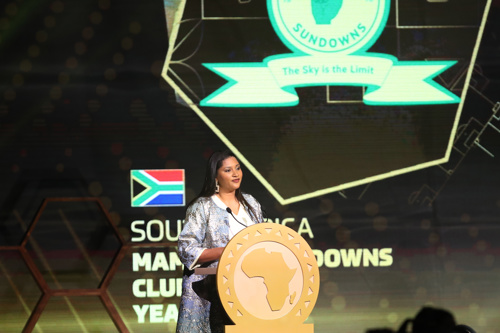
What is your vision for the future of women’s football in Africa? What goals would you like to see achieved in the coming years?
Over the past four years, it has been observed that Africa has exceptional talent in women’s football. By investing in the development of this sport at all levels, from talent detection to improving playing and training conditions, and ensuring support from federations and governments, it is possible to realize a vision of progress for women's football.
Encouraging young girls to participate from an early age by providing them with the necessary resources can foster the emergence of talents capable of competing with the world’s best teams.
It’s plausible that an African team could soon triumph on the global stage, bringing significant pride to the continent. With adequate support in infrastructure, training, and funding, the possibility of seeing an African team win the World Cup in the near future is achievable.
Madam Vice President, what motivates you daily in your mission for the development of women’s football, despite the challenges you face?
When you experience the joy of a victorious team, the excitement around the sport, the determination of the players, or the sadness of the losing team, you can’t help but want to do more for this game.
This sport represents hope for some and passion for others. Seeing the happiness it brings to women, regardless of their age, motivates me to provide them with these precious moments.
The Women’s Champions League (WCL) perfectly illustrates these intense emotions. Since its creation, each year we experience strong emotions that show that this sport is a blessing for women.
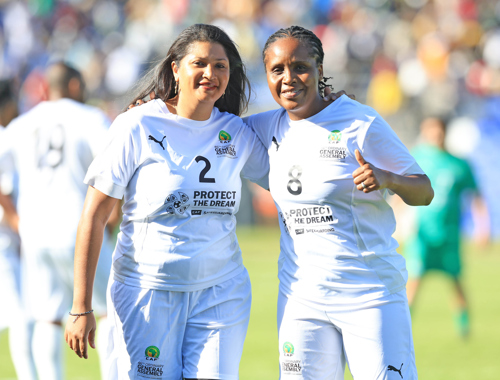
The development of women’s football also requires quality infrastructure and competitions. What projects are currently underway to further structure women’s competitions on the continent?
Indeed, without these, there can be no visible progress. Four key points to achieve this: increased funding, expansion of competitions, professionalization, and greater visibility.
The establishment of the Women’s Champions League and the annual increase in prize money have contributed to development. The increasing participation rate of teams indicates women’s growing interest in the sport and encourages the expansion of the number of teams at each event.
It is also essential to address the professionalism of women’s football by providing more training, both for referees to ensure fairness and for coaches to provide specific coaching for women. It’s also important to give visibility to our competitions and increasing the number of sponsors to support the growth of women’s football is crucial.
Collaboration with governments is essential for the development of sports infrastructures, which are the foundation of flourishing women’s football. Without strong institutional support, it’s difficult to guarantee quality facilities that are accessible to all players. Everything is interconnected.
What message would you like to send to young African girls who aspire to build a career in football, whether as players or administrators?
Don’t be afraid and get fully involved. You’ve demonstrated your skills on the field; you can also apply them as a leader. Willpower is essential, and you’ve already proven it. So, don’t let anyone take your place!



